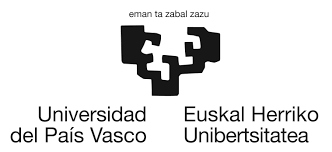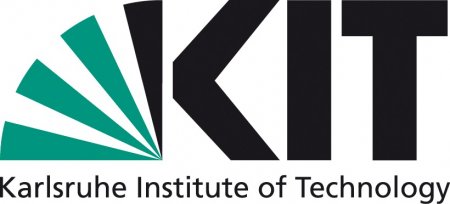
RRI and Future-Making: Responsibility through Anticipation
Descripción
Course Directors:
- Stefan Böschen, RWTH Aachen University
- Andoni Ibarra, University of the Basque Country UPV/EHU
- Bettina-Johanna Krings, Institute for Technology Assessment and Systems Analysis (ITAS-KIT)
- Hannot Rodríguez, University of the Basque Country UPV/EHU
Summary
The European Commission claims that research and engineering activities under the next R&D Framework Programme, “Horizon 2020” (2014-2020), will be conducted according to a “Responsible Research and Innovation” (RRI) framework, meaning that “societal actors work together during the whole research and innovation process in order to better align both the process and its outcomes, with the values, needs and expectations of European society” (European Commission, 2012, p. ii). RRI can be understood thus as an effort to justify innovation not on grounds of uncritical, or taken for granted macro-economic assumptions, but on the basis of societally-beneficial objectives, or challenges, as openly defined and debated by a plurality of societal actors. As such, RRI-based EU policy aims to introduce “broader foresight and impact assessments for new technologies, beyond their anticipated market-benefits and risks” (von Schomberg 2013, p. 51).
RRI’s radical rhetoric on openness and socialization regarding techno-industrial innovation processes has been claimed to ultimately reflect four fundamental principles of responsible governance: anticipation, reflexivity, deliberation and responsiveness (Stilgoe, Owen and Macnaghten 2013). The summer school is particularly interested in the anticipation dimension—even though the four principles are constitutively interrelated. Far from representing a commitment with prediction and control, “anticipatory governance” (Guston 2014) is related with the expansion of the societal imaginations about future possible socio-technical scenarios, and the willingness and capacities to constitute a more reflexive, participatory and societally responsive innovation governance on that basis.
Objetivos
Aims of the summerschool:
-
To analyse the meaning and role of anticipation in the constitution of more responsible research and policy dynamics.
-
To provide conceptual bases to better understand the ways in which future-making practices impinge on RRI and governance dynamics, and viceversa.
Colaboradores
Programa
10-09-2018
“Opening Session“
- Bettina-Johanna Krings --- Karlsruhe Institute of Technology (KIT) - Head of Research Area at the Institute for Technology Assessment and Systems Analysis (ITAS)
- Andoni Ibarra University of the Basque Country UPV/EHU - Coordinator of the Miguel Sánchez-Mazas Chair
- Stefan Böschen HumTec, RWTH Aachen University - Professor
11-09-2018
“"Responsible Research and Innovation Strategies" (title to be confirmed) / Presentations of PhD papers“
- Richard Owen University of Bristol - University Professor
Presentation of Phd paper / Summarizing and discussion of day 2
12-09-2018
“"Understanding Responsible Research and Innovation in Europe" (title to be confirmed) / Poster Session“
- René von Schomberg European Commission - Head of Research Area
Presentation of Phd paper / Summarizing and discussion of day 3
13-09-2018
Panel Discussion / Presentations of Phd papers
Presentation of Phd paper / Discussion and Summarizing of Day 4
14-09-2018
“"Responsible Research and Innovation and Sustainability" (title to be confirmed) / Presentations of PhD papers“
- Cynthia Selin School for the Future of Innovation in Society & the School of Sustainability at Arizona State University; Senior Sustainability Scholar, Julie Ann Wrigley Global Institute of Sustainability - Associate Professor
Feed back round / Closing ceremony
Directoras/es

Andoni Ibarra
Universidad del País Vasco, UPV/EHU, Department of Logic and Philosophy of Science

Scientific Degree: Master of Art, M.A. in Political Sciences (Heidelberg, 1990); PhD (Dr.phil.) in Sociology (Frankfurt a. M., 2015) Previous Positions: Scientific Referee at the German Foundation of the International Development (1991-1992); Scientific Referee at the Ministry of Cultural Affairs in Buenos Aires, Argentina (1992-1994); Scientist at Institute of Technology Assessment and Systems Analysis (ITAS), Karlsruhe Institute of Technology (KIT) (since 1995); Senior Scientist at ITAS (since 2005) Current Position at ITAS: Head of Research Department: Knowledge Society and Knowledge Politics and ITAS (KIT) (since 2012) Speaker of the topic: Work and Technology at ITAS (since 2009) Deputy Speaker of the Topic: Technology and Work in the KIT Program “Humans and Technology” (since 2014)
Ponentes

Stefan Böschen

Richard Owen

René von Schomberg

Cynthia Selin
Lugar
Palacio Miramar
Pº de Miraconcha nº 48. Donostia / San Sebastián
Gipuzkoa
Palacio Miramar
Pº de Miraconcha nº 48. Donostia / San Sebastián
Gipuzkoa







